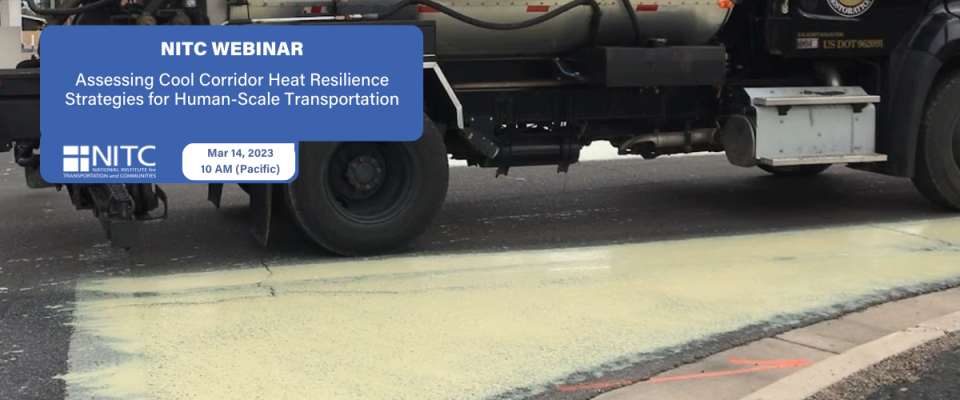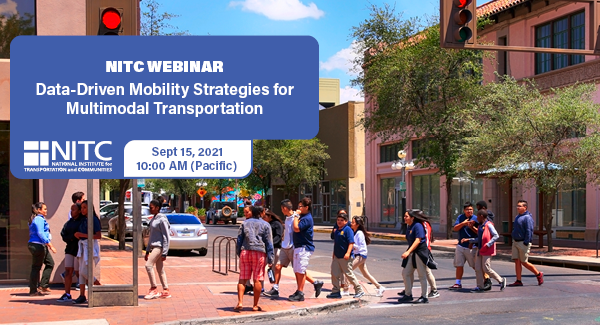PRESENTATION ARCHIVE
OVERVIEW
Heat is the number one weather-related killer in the United States, and the implications of heat impacts range from individual transportation users, to emergency management services, and entire transportation networks and systems. In this presentation, we'll cover key concepts for urban planning and heat resilience, including heat mitigation and management strategies. Additionally, we will discuss the original NITC-sponsored data collection evaluating one such cool corridor strategy--PlusTI cool pavement rejuvenator--and the associated challenges of researching impacts of strategies on human-comfort in natural and built environments.
KEY LEARNING OUTCOMES
The audience will walk away with:
- an understanding of planning for urban heat resilience;
- the ability to recognize and differentiate heat mitigation and management strategies;
- an understanding of the impacts of heat on transportation users and systems;
- an ability...


